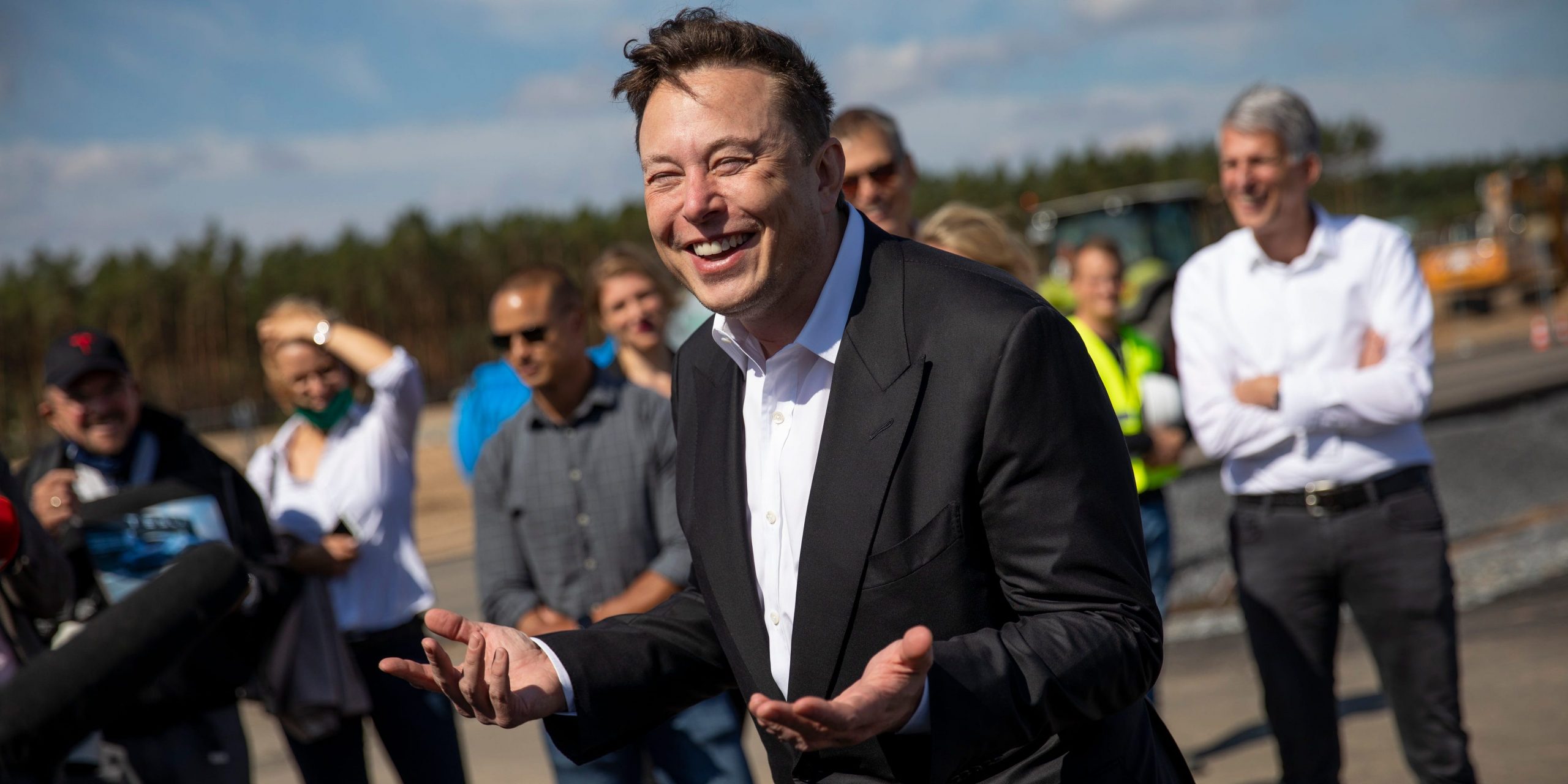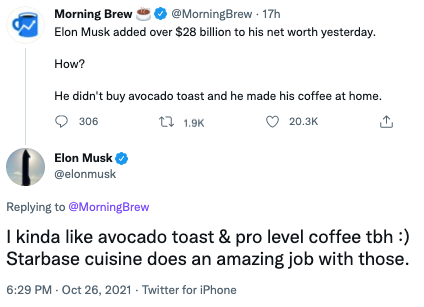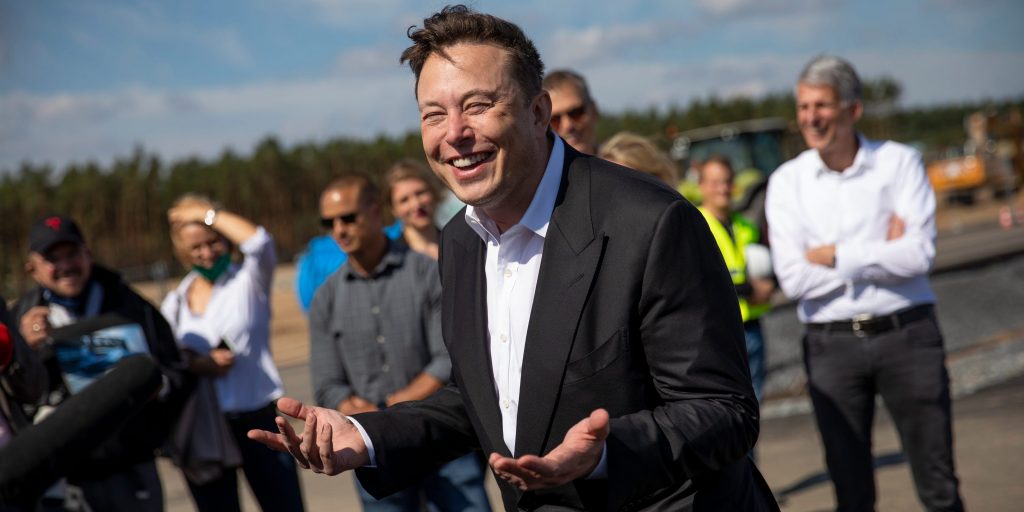
Maja Hitij/Getty Images
- Elon Musk could soon become the first person whose net worth hits $300 billion.
- Morning Brew indicated on Tuesday that Musk doesn't have the spending habits of avocado toast-loving millenials.
- "I kinda like avocado toast & pro level coffee tbh :)" Musk said.
- Sign up here for our daily newsletter, 10 Things Before the Opening Bell.
Elon Musk is worried people may have to struggle with high prices for goods in the near term, but it doesn't look like that's keeping the world's richest man from enjoying small luxuries.
The Tesla and SpaceX CEO has had a monumental week, with his net worth exploding to $287 billion this week owing to the electric-vehicle maker's massive bull run. He could soon become the first person ever to top a fortune of $300 billion.
Musk didn't seem to entirely agree with business newsletter Morning Brew, when it tweeted that Musk's net worth could be the result of cutting back on stuff like avocado toast and buying coffee from shops.
"I kinda like avocado toast & pro level coffee tbh 🙂 Starbase cuisine does an amazing job with those," Musk said.
Starbase is Elon Musk's vision of a city in which high-end infrastructure and hangars for building, testing, and launching SpaceX's Starship rockets will take place. He announced plans to create this city earlier this year.

Consumer prices have continued to rise at the fastest rate since 2008 as a direct result of the economic rebound from the COVID-19 pandemic. And supply chain disruptions are squeezing company margins.
But lower interest rates make it cheaper for companies and consumers to borrow and spend, in turn increasing demand for goods and services. A combination of these factors is also driving prices up.
Earlier on Tuesday, Musk weighed in on the inflation debate. "I don't know about long-term, but short-term we are seeing strong inflationary pressure," he tweeted in response to a thread by Cathie Wood.
Wood said while the consensus view is that inflation will remain an issue and could get worse, technology associated with AI, energy storage, robotics, genomic sequencing, and blockchain could temper the situation.
